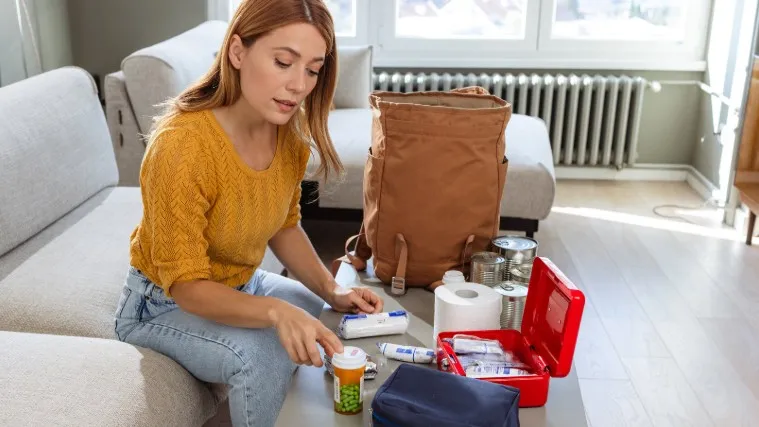In response to escalating global challenges—including geopolitical tensions, cyber threats, natural disasters, and pandemics—the European Union (EU) is advocating for all households within its 27 member states to assemble 72-hour emergency survival kits.
Purpose of the 72-Hour Emergency Kit
The primary objective of these kits is to ensure that individuals and families can sustain themselves during the initial 72 hours following a crisis. This timeframe is critical, as it allows emergency services to respond effectively without being overwhelmed.
Recommended Contents for the Emergency Kit
While specific items may vary based on individual needs and regional considerations, the EU provides general guidelines for assembling a comprehensive emergency kit:
✔️Water: At least 3 liters per person per day for drinking and sanitation.
✔️Non-Perishable Food: Ready-to-eat items such as canned goods, energy bars, and dried fruits.
✔️Medical Supplies: Essential medications, first aid kit, and any necessary medical equipment.
✔️Communication Tools: Battery-powered or hand-crank radio to stay informed about news and official updates.
✔️Lighting: Flashlight with extra batteries or alternative light sources.
✔️Personal Documents: Copies of identification, insurance policies, and bank records stored in a waterproof container.
✔️Cash: Small denominations to use in case electronic payment systems are unavailable.
✔️Clothing and Bedding: Appropriate attire for various weather conditions and sleeping arrangements.
✔️Tools: Basic items like a multi-purpose knife, manual can opener, and utility tools.
✔️Hygiene Products: Sanitation supplies including moist towelettes, garbage bags, and personal hygiene items.
Implementation Across Member States
Several EU countries have already initiated measures to promote household preparedness. For instance, France recommends a 72-hour survival kit containing essentials like food, water, medicines, a portable radio, flashlight, spare batteries, chargers, cash, copies of important documents, spare keys, warm clothing, and basic tools.
Conclusion
The EU's call for citizens to prepare 72-hour emergency survival kits underscores the importance of individual and collective preparedness in the face of unforeseen crises. By proactively assembling these kits, households can enhance their resilience, ensure safety, and contribute to a more robust societal response during emergencies.
For more detailed guidelines and recommendations, citizens are encouraged to consult their national emergency management agencies or visit official EU resources.



